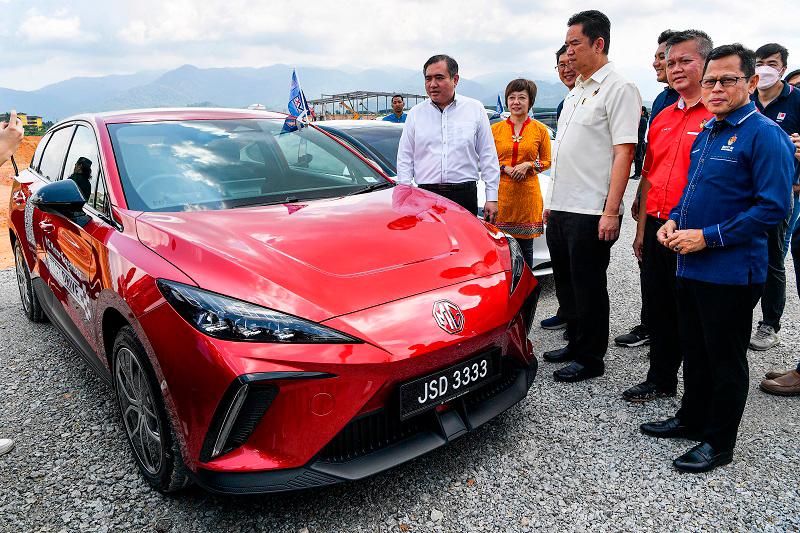REMBAU: The government is making sure the entire electric vehicle (EV) ecosystem is well planned for the convenience of consumers and to encourage more people to adopt this mode of transport.
Transport Minister Anthony Loke said the EV purchase level in the country is still low due to various constraints that cause consumers to mull whether to buy EVs or internal combustion engine (ICE) vehicles.
“In terms of ecosystem, there is a need to look at the EV vehicle management after several years, as EVs are said to last eight to 10 years before the need for battery change and so on.
“If it is an ICE vehicle, we know there is a used car industry for ownership change and so on, but it is not yet there for EVs. Being still new, there is still no secondary market.
“This requires action and careful planning as we don’t want problems to crop up after many people have started using EVs,” he said during a media conference following the launch of the Careplus Group ESG Programme in conjunction with the development of Careplus Mall.
Loke, who is Seremban Member of Parliament, attended the launch, which was held across two locations -- at the Careplus Mall in Seremban 2, moving to the NeXV Manufacturing’s EV plant site in Chembong (a joint venture between Careplus and GoAuto Group). The launch was officiated by Negeri Sembilan State Tourism, Arts and Culture Committee chairperson Nicole Tan Lee Koon.
Loke said the government, through cooperation among various agencies, is seeking to increase charging stations that comply with the Fire and Rescue Department’s safety guidelines, automotive expertise, and skilled labour in EV.
On NexV’s new energy vehicle manufacturing and assembly plant in the Chembong Industrial Area, he said Malaysia’s first green technology EV facility is being built based on environmental, social, and governance (ESG) fundamentals.
Once operational in 2025, the plant is expected to reduce its carbon footprint through eco-friendly solutions, including technologies that produce zero wastewater discharge and zero noise pollution, while solid waste will be processed through recycling centres within the facility.
A significant portion of factory’s energy will also be powered by solar panels to be installed on the roof of the plant.
The plant, which involves a total investment of RM600 million, was 30 per cent completed as of April 2024.









